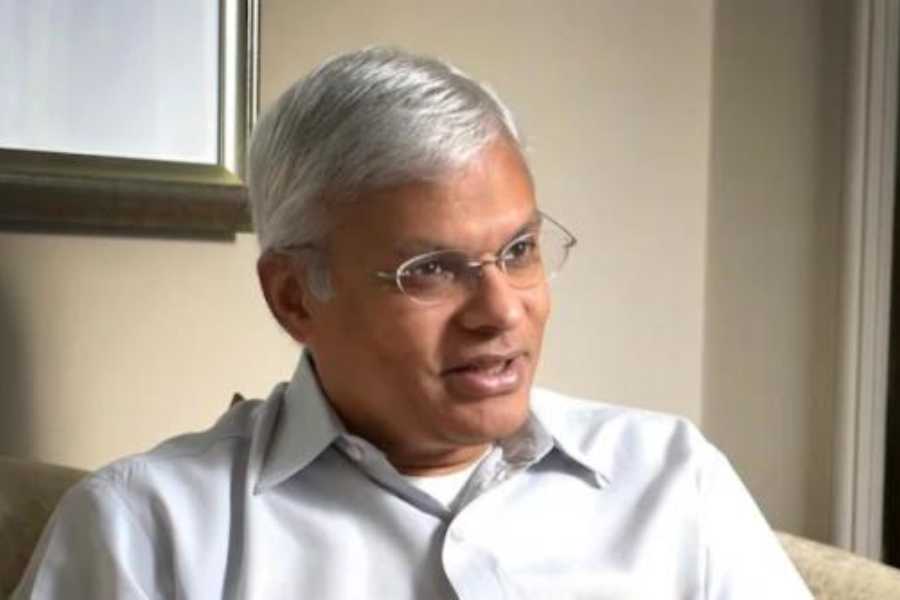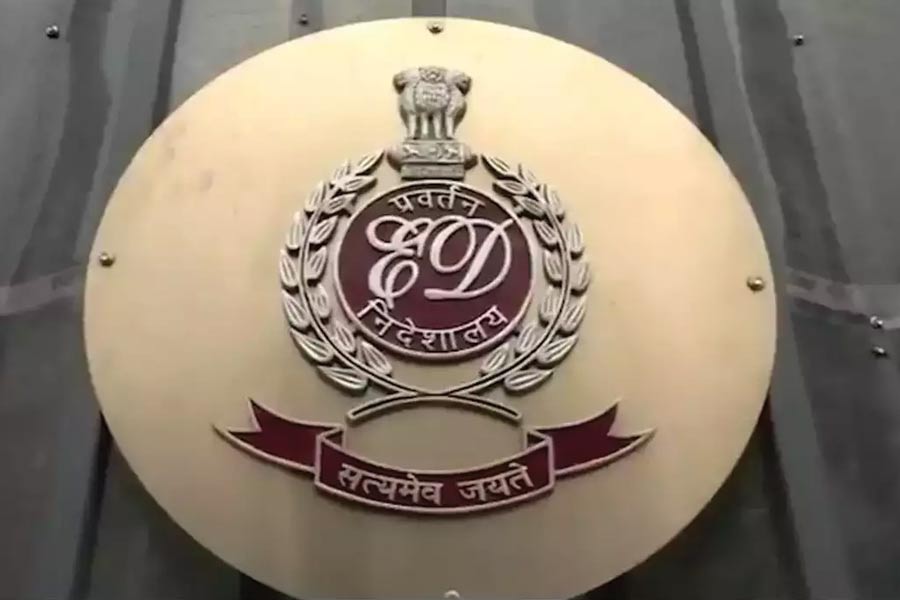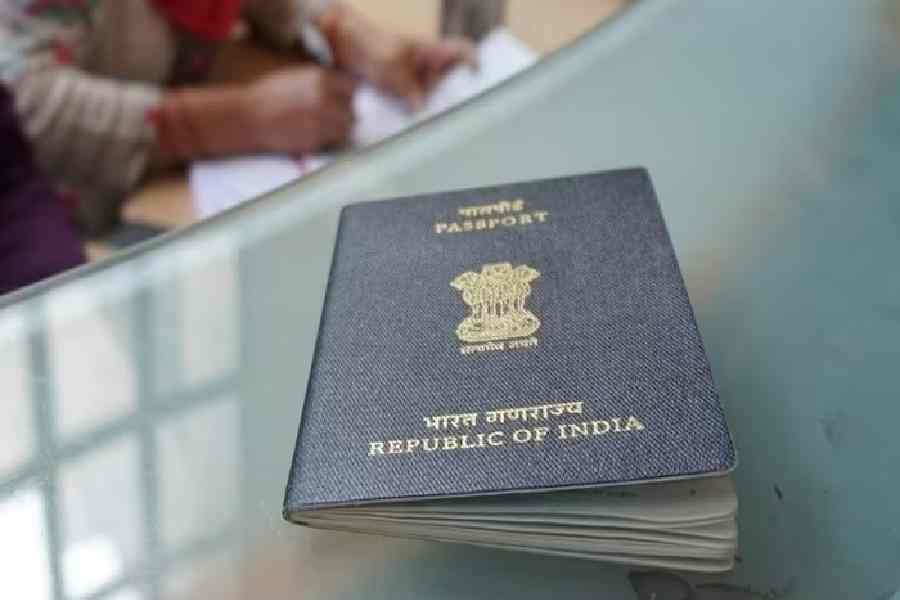 |
 |
| Robert Wallis’s photograph of a coal mine fire (top), one of several at the SOAS exhibition that also featured tribal art. Cambridge don Dr Jennifer Wallace (above) wrote the image captions. Picture by Amit Roy |
London, April 20: Organisers of an exhibition of photographs and tribal art from Jharkhand which has opened at the prestigious School of Oriental and African Studies in London have made a number of allegations against mining companies working in the area.
The most serious is that Uranium Company of India Ltd has suppressed information on the growing incidence of birth defects in the local population.
It is also alleged that children are allowed to swim in pools containing contaminated water; also clothes infected with the ore are being washed at home by the workers’ wives who, like their men folk, take no precautions. It is not clear if the vulnerable villagers are being exposed to radioactive material.
Surprise was also expressed that Tata Iron & Steel, a company known for its social responsibility, has apparently not taken sufficient care of its manual workers.
These allegations have so far not been disputed in London.
The exhibition, “A Disappearing World: Ancient Traditions Under Threat in Tribal India”, opened at the Brunei Gallery at SOAS on April 13 and will run until June 25. Seminars are also being held to discuss the suffering of the tribals.
The photographs have been taken by an American, Robert Wallis, who said: “The adivasi artists are using their art to raise awareness about their ancient cultural traditions that are threatened by mining, along with their entire way of life.”
The captions to the images of different aspects of life in Jharkhand, including grim photographs of burning coal fields, have been written by a Cambridge don, Jennifer Wallace — director of studies in English at Peterhouse — who has paid a number of trips to the state with Wallis.
“This is an image of Hell,” she declared. “Hell is fire, suffering, greed, injustice.”
Also present were two women tribal artists, Philomena Tirkey Imam and Elizabeth, who sang plaintive songs in remembrance of paradise lost.
The tragedy for the adivasi and other tribes in Jharkhand and the adjoining states of Chhattisgarh and Orissa is that they have been displaced from their traditional grounds by intensive mining. Their lands contain “an estimated 40 per cent of the country’s deposits of coal, iron ore, uranium and other minerals considered essential for India’s industrial and energy needs”, influential guests attending the exhibition were told.
Wallis, who also curated the exhibition, emphasised, “This isn’t about Maoists”, but there was an indirect link with the terrorism in “India’s red corridor”, he acknowledged. And the tribes people themselves, who still live in dark villages, had “not benefited from the electricity lighting up Delhi and the (fence on the) India-Pakistan border”.
It was pointed out that some Indians do back the progress being ushered in by such companies as Vedanta, Tata Iron & Steel and the Uranium Corporation of India Ltd.
But the opposite argument was also put. Although the adivasis “have no papers to prove their ownership of the land”, “they have farmed, hunted and fished Jharkhand’s fields, forests and rivers for millennia and their worship of natural deities and the stone megaliths of their ancestors give them a sacred sense of belonging to the land. But with the minerals below that land acquiring a new value, outside prospectors have moved in to make their fortunes.”
Wallace asked whether it was fair that the tribes people should suffer so that urban India could prosper. “This (issue) is not unique to India but India is the second fastest growing economy in the world.”
“In the east of Jharkhand, underground coal fires burn out of control,” it is revealed, referring to the coal belt of Jharia in Dhanbad.
“Children play and walk to work in wasteland cracked open by fire and some are killed each year falling accidentally into the chasms. It is estimated that about 30 per cent of the coal is burned up before it can be mined. Critics claim that mining companies deliberately allow the fires to spread in order to force people off their land, clearing areas for more open pit mines.”
The exhibition quotes the words of Supreme Court judge Aftab Alam: “It is very often the process of development that most starkly confirms the fears about our democracy. A blinkered vision of development, complete apathy towards those who are highly adversely affected by the development process and a cynical unconcern for the enforcement of the laws lead to a situation where the rights and benefits promised and guaranteed under the constitution hardly ever reach the most marginalised citizens”.
Wallis said: “An announcement was made at the end of a seminar by the Gandhi Foundation that one of the nominees for its annual peace award is Bulu Imam for his work to protect adivasi culture through the Tribal Women’s Artist Collective and to protect the Jharkhandi environment where 30 new coal mines are planned in the coming years.”
“The other nominee announced, he revealed, “was Dr Binayak Sen, who has just been released from jail.”










